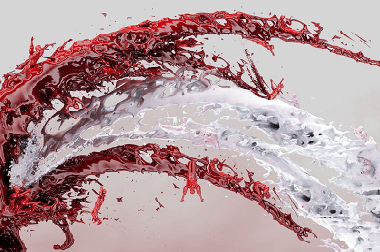Health for a lifetime >>>> Hydremia
Hydremia.

Hydremia (watery blood) is a condition characterized by an increase in the concentration of the liquid component of the blood in relation to the concentration of red blood cells. With hydremia, the physical characteristics of the blood are violated - density and viscosity, blood thinning occurs . In a healthy person, hydremia can develop as a result of excessive consumption of water or other liquids (as a result of improper drinking regime).
Hydremia can accompany a number of kidney and heart diseases, secondary anemias (with a decrease in hemoglobin concentration), oncology, tuberculosis, dysentery, salmonellosis, hypoproteinemia (a decrease in the level of protein in the blood plasma, for example, during fasting and other conditions).
With normal kidney function, hydremia is a temporary condition and lasts no more than two hours, but with a disorder of renal activity, the state of hydremia can take on a threatening character if the amount of water in the blood exceeds 60%, due to the fact that too liquid blood easily seeps through capillary walls. The most frequent cases of hydremia are observed with significant blood loss, when tissue fluid begins to be thrown into the bloodstream (compensatory mechanism), with the introduction of drip physiological solutions to replenish the lost blood volume.
Compliance with a protein-free diet leads to hydremia and causes cachectic tissue edema . The chronic state of hydremia has a detrimental effect on health, depletes the body, reducing the concentration of oxygen, enzymes, proteins and other blood elements important for maintaining the body's vital activity, thereby disrupting the processes of tissue trophism. This, in turn, causes malfunctioning of various organs and can be fatal.

Read

Read



























